Resources, rights & ‘Where the ($%#!) is Canada on the Arctic?’: Your Arctic Frontiers Week in Review
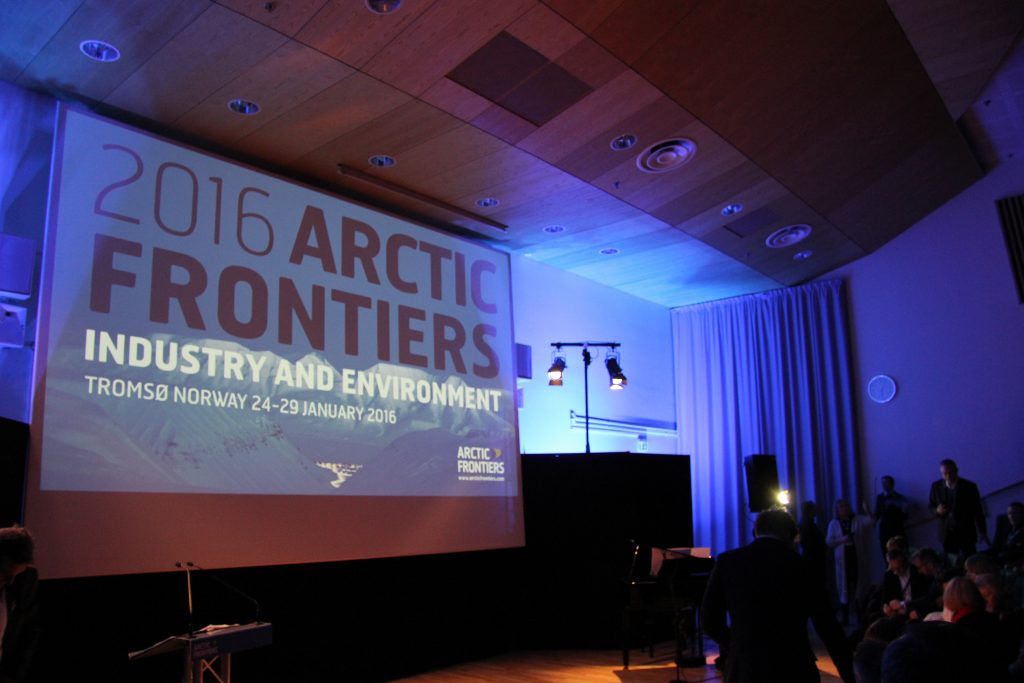
TROMSO, Norway – Usually at the end of each week, we bring you the Week in Review with your most read stories on Eye on the Arctic for that week.
But today we’re doing things a little differently.
Eye and the Arctic has been reporting from the Arctic Frontiers conference in Tromso, Norway this week. And today we’re bringing you a roundup of the kinds of conversations that came up around the water cooler and the one question people wouldn’t stop asking us.
Resources:
Business wants it, governments want it and indigenous communities want it (as long as they are full partners in the process). But with the plunge in oil and commodities prices, coupled with the climate agreement reached by the international community during the COP21 meeting in Paris in 2015, what is the future of resource development in the Arctic? What is development in the Arctic going to look like? With trillions of dollars of investments in the resource industry, what and how will things change? Seems there’s not many answers yet, but Eye on the Arctic sure heard lots of interesting questions and discussions on these issues at Arctic Frontiers.
Rights:
If there was one message at the conference from indigenous peoples, it was the need for real partnerships with governments and business when it came to development, crucial to the kinds of infrastructure, education and job opportunities their communities need.
But at times it seemed surreal. One politician after another mentioned the importance of indigenous rights and working with indigenous peoples on Arctic development. This was often even in the first three or four points of their speech. So, the politicians all pledged wanting to work with indigenous peoples, the indigenous peoples all pledged to wanting to work with governments. But on the ground indigenous leaders (except certain exceptions like autonomous Greenland) say this isn’t happening.
I asked Aili Keskitalo, the leader of the Saami Parliament in Norway, which represents the indigenous Saami reindeer herders, how we should understand the disconnect. Her answer: “Politicians need to not just talk the talk but walk the walk.”
The look on her face when she said that is one of those times that I wish I was here with a TV camera instead of only a radio mic.
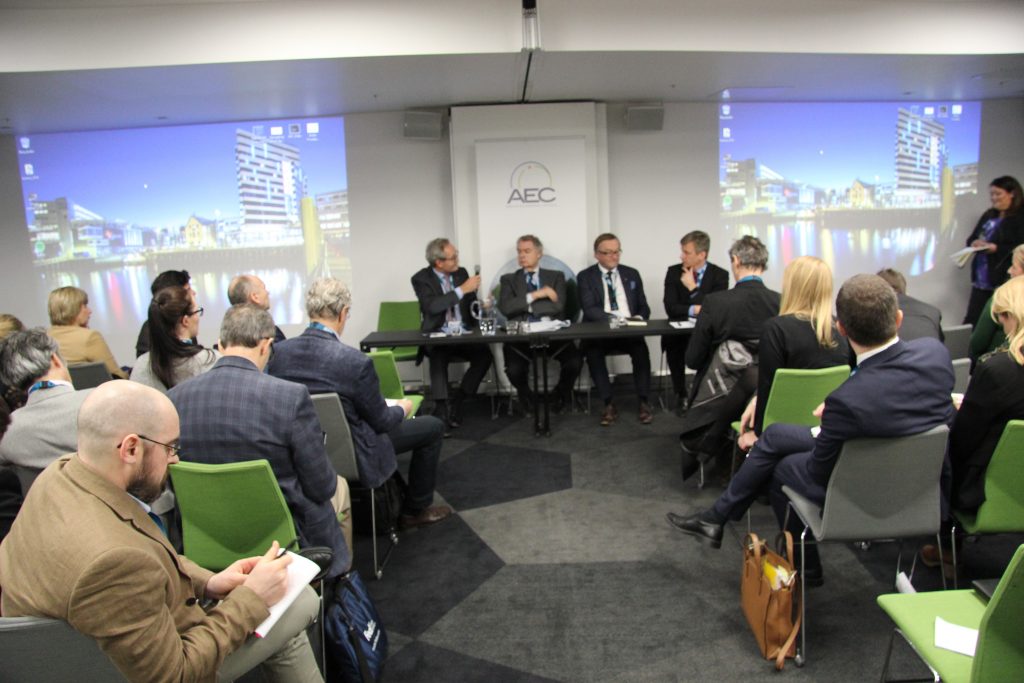
‘Where the ($%#!) is Canada on the Arctic?’
I lost count of the number of times this question came up once people found out I was from Canada.
The most watched, most anticipated part of the conference is the first day when diplomats, politicians, indigenous leaders and even foreign ministers address Arctic Frontiers about their vision for the North and the roles their countries can play in it.
In recent years, Canada has often had high-level officials at Arctic Frontiers.
Arctic Frontiers: Canadian presence at opening policy day
2016: No one
2015: Vincent Rigby, Chair of the Arctic Council’s Senior Arctic Officials
2014: Patrick Borbey, Arctic Council Chair of Senior Arctic Officials
2013: Leona Aglukkaq, Minister of Health and the Canadian Northern Economic Development Agency
2012: Clément Gignac, Quebec minister of Natural Resources & Wildlife and Plan Nord
2011: John F.G. Hannaford, Canada’s Ambassador to Norway
2010: John F.G. Hannaford, Canada’s Ambassador to Norway
2009: Danielle Labonté, Director General, Strategic Policy (Northern Affairs), Indian & Northern Affairs
2008: Tom E. Stubbs, Integrated Environments Ltd.
2007: Martin Fortier, COO ArcticNet & Duane Smith, President, Inuit Circumpolar Council, Canada
Canada’s Minister of Foreign Affairs Stéphane Dion was invited this year but didn’t come. (The press folks over at Global Affairs Canada (that would be the Ministry of Foreign Affairs to the rest of the world), told me he was considering the invitation but radio-silenced subsequent calls & email inquiries.
That’s not to say the current government is ignoring the North at home.
The Liberals campaigned in the Arctic on some very concrete issues of importance to northern communities like the Nutrition North Program and tax credits for people living in the North. Since the election, the government has made a point to build strong relations with indigenous communities in Canada, as seen when the Truth and Reconciliation Commission issued their final report and by meeting with aboriginal groups like Inuit Tapiriit Kanatami, Canada’s national Inuit organization.
But Trudeau hasn’t said much about his vision of the Arctic as a whole. What role does he see it playing in the Canadian economy if any? What role can and should Canada play on the international stage when it comes to Arctic issues?
Dribs and drabs have been uttered. Defence minister Harjit Sajjan told Embassy News this month that Arctic sovereignty would be a priority in the upcoming military review. But the government hasn’t put forward their big picture.
Do I think the average Canadian walking down the street in Victoria or Fredericton is waiting with bated breath for Trudeau’s pronouncements on the Arctic? Highly unlikely. But at Arctic Frontiers, an international conference of politicians, diplomats, scientists, business people and researchers, all with special interest in the Arctic, people are noticing and have been interested enough to ask about it. (Usually without swearing but one time with!)
Maybe the fact the Harper government made the Arctic such a huge part of its domestic and international positioning that it created an expectation that Canadian leaders will always have a grand vision, no matter how controversial, about the North to share with the world. Or maybe people do really care what Canada has to say on Arctic issues? (Just putting that out there.)
We’ll have to wait and see on this one.
In the meantime, that’s all from us and Arctic Frontiers for now.
We’ll be back home at the mothership in Canada on Monday and will return to our regular Eye on the Arctic update schedule.
Have a great weekend everyone!
Write to Eilís Quinn at eilis.quinn(at)cbc.ca

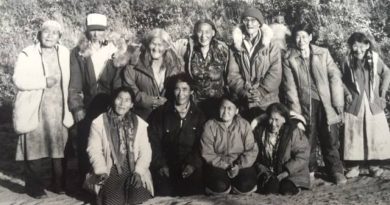
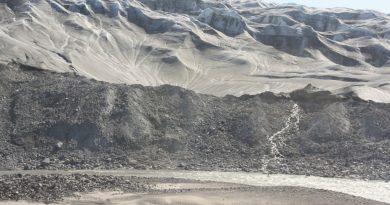
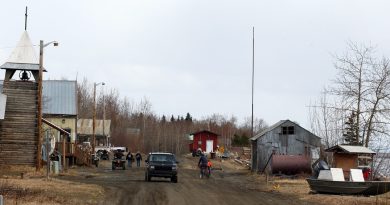
A short note to let you know that Ms. Susan Harper, Canada’s Senior Arctic Official and Director General as well as Ambassador Artur Wilczynski, Canada’s Ambassador to Norway attended Arctic Frontiers.
Thanks for the note Robert. Yes, they were both there (as were Canadian scientists, researchers, participants, northerners, etc.) Susan Harper indeed spoke on a panel with the other SAOs regarding Arctic Council priorities. But what people latched on to and asked about was lack of Canadian perspective at the opening policy section. Minister Dion was invited, didn’t accept, no one sent in his place, etc People were curious about why and what it may (or may not) signal about importance, role of Arctic for current government. Especially when representatives from places like Slovakia, South Korea, etc were present.